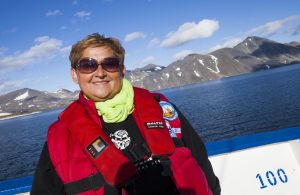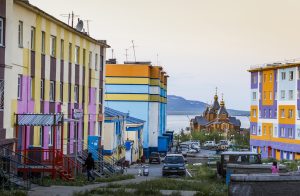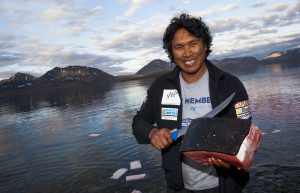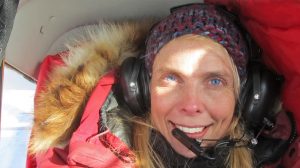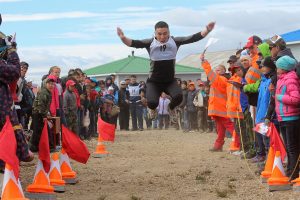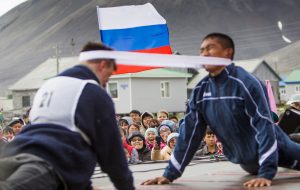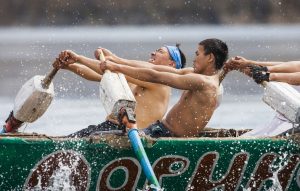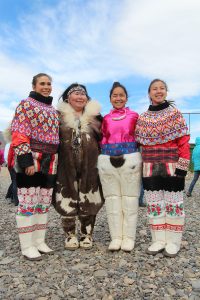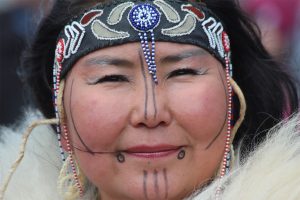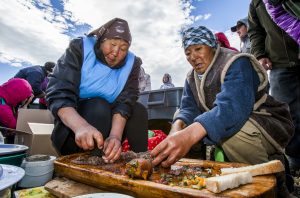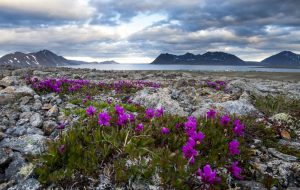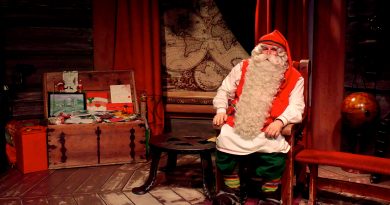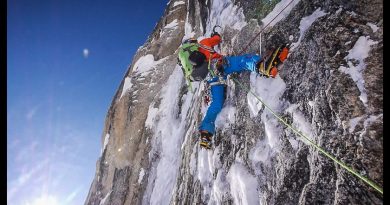Creating links across the Arctic – A look back on the Beringia Arctic Games
To view photo captions, click on “SL” and then the “info” button in the top right-hand corner
The inaugural Beringia Arctic Games was held this summer in Chukotka, Russia.
On the third weekend in July, the small Arctic Russian community of Novo Chaplino welcomed participants from around the circumpolar world including Iceland, Greenland, Faroe Islands, Sapmi, Alaska, Nunavut, Norway and Denmark.
And though they came to compete in events like skin boat racing or traditional Inuit games like High Kick, many came away with much more than a medal.
“It was like going home,” said Johnny Issaluk, an Inuit games expert, actor and cultural ambassador from Canada’s eastern Arctic territory of Nunavut. “They live exactly the way I do, that my people do. It was astonishing.”
Sharing traditions
Chukchi (Inuit) villages in Chukotka hold regular skin boat races together twice a year and over time organizers started thinking how the traditions in this remote Arctic region of Russia, mirrored the games and traditions of other Arctic regions, said Irina Ryabukhina, the head of the committee of sport and tourism in the government of Chukotka.
“They have the same life philosophy, the same traditions, same relationship with nature,” she said. ” This is why we wanted an event to welcome all these people.”
This year’s games were held to coincide with the summer’s annual skin boat races in Chukotka. And in something that sets the Beringia Games apart, the event was open to anyone that wanted to compete, not just those involved in structured teams.
“We were looking to create an event that would allow people to gather around an interest in the Arctic, the Arctic environment, the traditional games and how they’re all connected,” said Alaska-based Mille Porsild, one of the games organizers.
“We just wanted to follow the old tradition of Arctic gatherings , coming together and telling stories whether that storytelling is through dancing, singing, drumming or through the sports themselves.”
Logistical challenges
Travelling to the Chukotka region is difficult, even for people already living in Russia. Bringing people from all the around the Arctic was its own unique challenge, but was more than worth it, Ryabukhina said.
“Even in Russia, some people think of Chukotka like it’s another planet,” she said. “And it is hard and very expensive to reach us. But it’s important that Arctic peoples see each other face-to-face…. We live so far away from each other, but we need to understand that in other ways, we are so close.”
The next edition of the Beringia Arctic Games will take place in the Chukotkan village of Lorino July 17-19, 2015.
Write to Eilís Quinn at eilis.quinn(at)cbc.ca
Related stories from around the North:
Canada: Inuk NHL star Jordin Tootoo stick giveaway video goes viral, CBC News
Greenland: 2016 Arctic Winter Games to cut 6 sports, CBC News
Russia: Big hockey weekend for Eye on the Arctic community, Eye on the Arctic
Sweden: Arctic hockey team to wear rainbow jerseys all season in support of LGBT rights in sport, Radio Sweden
United States: Passport troubles keep some athletes from Arctic Winter Games in Alaska, CBC News

